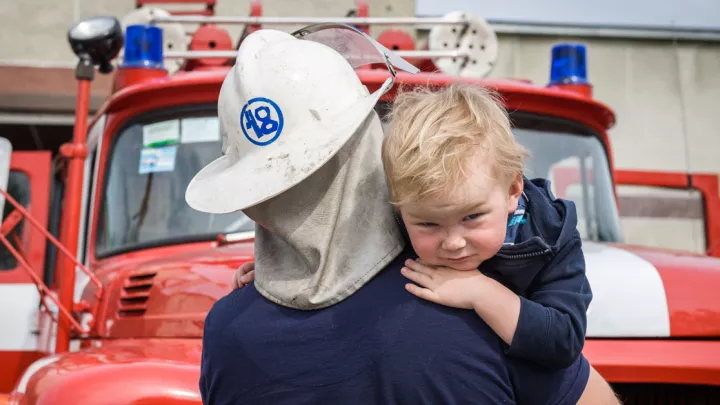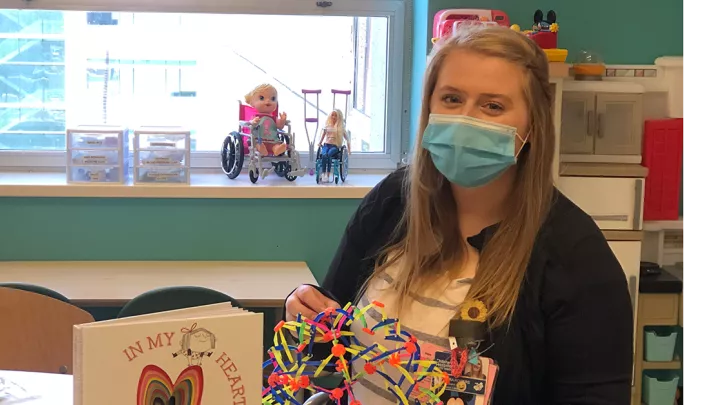
Resilience Helps Kids Recover from Trauma and How Parents Can Support Them
This blog post originally published on May 15, 2013.
Three women, recently, have been the icon of strength and courage since their escape from Ariel Castro’s decade long captivity in Cleveland. As the three women who were kidnapped in their youth and held for a decade in captivity recuperate from their trauma, a key to their recovery will be how they cope with the adversity they experienced. In this respect, many children have demonstrated remarkable natural resilience – an ability to adapt after something bad happens.

Reflecting on their clinical work with traumatized children and their families at Children’s Hospital Los Angeles, Psychologists Stephanie Marcy, PhD, and Karen Rogers, PhD, recently shared their observations with the Hallmark Channel’s Home & Family Show and USA Today, respectively. Below, they’ve expanded on their observations to discuss how children can develop resiliency, confidence and adaptive techniques while managing anxiety, stress, fear and uncertainty common to traumatic experiences.
“Under the right circumstances, even a child exposed to extreme adversity can recover and go on to thrive,” Rogers says.
But they can’t do it alone. Helping a young person recover takes more than just relying on their natural resilience. Here is what you can do to help.
Provide a Sense of Safety
Rogers: Reassure children that they are safe. Keep a predictable routine. Shield younger children from the news. Help teenagers manage their own exposure to media. Allow them to talk as much or as little about their experience as they want.
Marcy: Accentuate the positive things happening in the world rather than the negative.
Recovery can Take a Long Time
Rogers: After a few weeks or months, many kids who experience short-term stressors or trauma return to the way they were before the trauma. If that doesn't happen, it may be wise to seek additional help. Individual, family or group therapy can be very effective in helping people learn to cope with hardship.
What to Watch Out for
Rogers: This is more about who’s at greater risk. What to watch out for would be disturbance in mood, sleep, appetite, aggressive behaviors, nightmares, playing out the trauma over and over, and developmental regression.
Marcy: Some children are at risk for severe stress reactions to traumatic events. Factors include a history of child abuse and neglect, depression and anxiety and any family history of these experiences and symptoms. A lack of social and family support systems can also prolong the adversity.
Provide Structure and Caring
Marcy: Provide children with the comfort of a daily routine to provide them with structure and security. As a child matures, they can begin to develop their own routines. Build strong support systems, including immediate and distant family, teachers, mentors, coaches, peers or religious figures.
Rogers: “A child who knows that there is at least one grown-up who genuinely has their best interest at heart, who believes they can succeed and wants to help them, is more likely to be resilient even after multiple stressful experiences. This caring adult is often a parent, but could also be a grandparent, aunt or uncle, teacher, pastor or coach. Only one such adult makes all the difference in the world.”
Set a Good Example
Marcy: Build positive self-esteem through praise, encouraging them to be more independent and set goals for themselves. Praise for even small effort because it’s a progress toward goal accomplishment.
Rogers: One of the most powerful ways parents can influence their children is by setting an example. Show there is a balance between work and play, model a healthy lifestyle and show kids by your example that conflict can be resolved and that adversity can be overcome.
Empower Your Child by Providing Opportunities to Help Others
Rogers: Whether it's teaching a younger child how to play a game, participating in a food drive, fundraising event or volunteering, children who have an opportunity to care for others know that the things they do make a difference. Kids who know that their hard work can be successful, that their efforts matter, are better able to cope when things are tough.
Final Thoughts
Marcy: Research shows that the support of the adults the children are closest to and their living environment often have a stronger influence on how they adjust after abuse than the actual nature of the abuse
Rogers: We can’t always shield kids from terrible experiences. But we can help them to build the capacity to adapt. Children have a natural ability to learn and grow that, coupled with adult support and help, can be a lifelong source of resilience.
To read a helpful blog post with information about how to talk to your kids about challenging situations like violence and disaster, check out this post from our Children’s Hospital Los Angeles experts.


